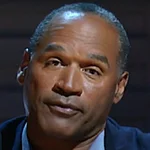|
|
When I read that AT&T and Comcast promised to increase their capital spending and pay some workers $1,000 bonuses because of President Trump’s recent tax cuts, my immediate thought was H.L. Mencken’s famous paraphrased quote: “No one ever went broke underestimating the intelligence of the American public.” Mencken’s comment in 1926 was in reference to uneducated readers who relied on tabloid newspapers for their information. Wonder what he would think of people whose worldviews are shaped by their Twitter and Facebook feeds.
Given their long histories of deception, dishonesty, and broken promises, the AT&T and Comcast announcements should have been instinctively regarded as “fake news.” It’s a measure of the absurdity of politics today that President Trump, with the lowest approval rating of any first-year president, would cite the support of two of America’s most hated companies for his unpopular tax policies. Disingenuous corporate spin is a fast-growing trend: Barron’s columnist Alex Eule astutely noted this week that Amazon and Tesla recently have made statements that are misleading and possibly dishonest.
|
|
Corporations are increasingly behaving like politicians and treating the public, the media, and investors as fools. The transformation is an inevitable outgrowth of the trend I’ve railed against for several years about the dangers of installing political hacks in senior corporate communications positions (see here, here, and here). Trump spokeswomen Sarah Huckabee Sanders embodies the skillset that may soon be required of all corporate PR pros: An ability to stand at a podium, look straight at a camera, and lie through your teeth with great conviction.
That the AT&T and Comcast announcements went unchallenged underscores the inexperience of the business media. AT&T and Comcast in 2016 respectively had $164 billion and $80 billion in revenues. The $1,000 worker bonuses were insignificant for them, particularly given that AT&T CEO Randall Stephenson last year was paid $28.4 million, while Comcast CEO Brian Roberts was paid $33 million. Stephenson and Roberts will be much bigger beneficiaries of Trump’s tax cuts, which critics say are designed to make the rich even richer.
Some additional perspective: AT&T two years ago was ordered to pay a $100 million fine for lying to customers about its supposedly unlimited data plans. The fine represents half the amount of the bonuses AT&T paid its workers. Think again if you believe the fine was big and painful enough to serve as an effective deterrent: AT&T last year again was under fire for deceiving its customers.
Comcast in 2016 paid a $2.3 million fine for overcharging customers. Washington State is suing the company for allegedly deceptive sales practices. Consumers Union warned that Comcast has repeatedly failed to honor promises. An advocacy group said Comcast didn’t increase local news programming as it promised to do as a condition for acquiring NBC Universal.
In hailing Trump for his tax cuts, AT&T and Comcast also played the president. Cutting corporate taxes was the linchpin of his campaign, yet the two companies financially supported Hillary Clinton by a wide margin. AT&T gave Clinton $339,260 in 2016, while Comcast gave her $489.193. By comparison, AT&T and Comcast respectively gave Trump $34,994 and $14,798.
As for AT&T’s and Comcast’s promises to spend billions on infrastructure improvements, the figures are meaningless without knowing their capital spending plans before the tax cut announcements. Both companies have to continuously upgrade their networks to remain competitive. And given their histories, there are no guarantees that AT&T and Comcast will actually make all their promised investments.
As I’ve previously argued, American consumers deserve getting fleeced. But this is no longer a country where people assume responsibility for their actions. A culture of victimization and demonization has taken hold, and if the dire warnings about Trump’s tax cuts prove correct, the economy could tank. Corporate America would be wise to develop a strategy on regaining trust before the next economic downturn. The days of the public believing that what is good for General Motors is good for America are over.
***
Eric Starkman founded STARKMAN PR firm in 1999. It has offices in New York and San Francisco.

 Eric Starkman
Eric Starkman H.L. Mencken
H.L. Mencken
 The techniques deployed by OJ Simpson's defense team in the "trial of the century" served as a harbinger for those used by Donald Trump... People worry about the politicization of medical science just as much as they fret about another pandemic, according to Edelman Trust Barometer... Book bans aren't restricted to red states as deep blue Illinois, Connecticut and Maryland challenged at least 100 titles in 2023.
The techniques deployed by OJ Simpson's defense team in the "trial of the century" served as a harbinger for those used by Donald Trump... People worry about the politicization of medical science just as much as they fret about another pandemic, according to Edelman Trust Barometer... Book bans aren't restricted to red states as deep blue Illinois, Connecticut and Maryland challenged at least 100 titles in 2023. The NBA, which promotes legalized gambling 24/7, seems more than hypocritical for banning player for placing bets... Diocese of Brooklyn promises to issue press release the next time one of its priests is charged with sexual abuse... Truth Social aspires to be one of Donald Trump's iconic American brands, just like Trump University or Trump Steaks or Trump Ice Cubes.
The NBA, which promotes legalized gambling 24/7, seems more than hypocritical for banning player for placing bets... Diocese of Brooklyn promises to issue press release the next time one of its priests is charged with sexual abuse... Truth Social aspires to be one of Donald Trump's iconic American brands, just like Trump University or Trump Steaks or Trump Ice Cubes. Publicis Groupe CEO Arthur Sadoun puts competition on notice... Macy's throws in the towel as it appoints two directors nominated by its unwanted suitor... The Profile in Wimpery Award goes to the Ford Presidential Foundation for stiffing American hero and former Wyoming Congresswoman Liz Cheney.
Publicis Groupe CEO Arthur Sadoun puts competition on notice... Macy's throws in the towel as it appoints two directors nominated by its unwanted suitor... The Profile in Wimpery Award goes to the Ford Presidential Foundation for stiffing American hero and former Wyoming Congresswoman Liz Cheney. JPMorgan Chase chief Jamie Dimon's "letter to shareholders" is a must-read for PR people and others interested in fixing America and living up to its potential... Get ready for the PPE shortage when the next pandemic hits... Nixing Netanyahu. Gaza carnage turns US opinion against Israel's prime minister.
JPMorgan Chase chief Jamie Dimon's "letter to shareholders" is a must-read for PR people and others interested in fixing America and living up to its potential... Get ready for the PPE shortage when the next pandemic hits... Nixing Netanyahu. Gaza carnage turns US opinion against Israel's prime minister. Trump Media & Technology Group sees Elon Musk's X as an option for those who want the free expression promised by Truth Social but without Donald Trump, owner of 57.3 percent of TMTG... Chalk one up for "anti-woke warrior" governor Greg Abbott as University of Texas lays off 60 DEI-related staffers... Five percent of Americans see the US as its own worst enemy, according to Gallup.
Trump Media & Technology Group sees Elon Musk's X as an option for those who want the free expression promised by Truth Social but without Donald Trump, owner of 57.3 percent of TMTG... Chalk one up for "anti-woke warrior" governor Greg Abbott as University of Texas lays off 60 DEI-related staffers... Five percent of Americans see the US as its own worst enemy, according to Gallup.


 Have a comment? Send it to
Have a comment? Send it to 
No comments have been submitted for this story yet.